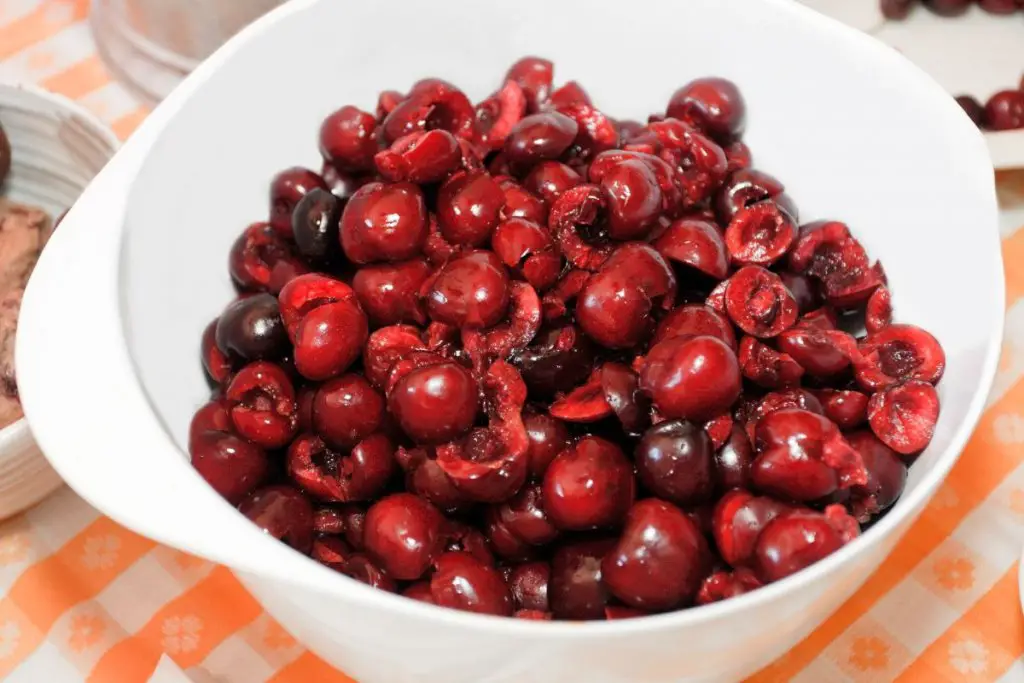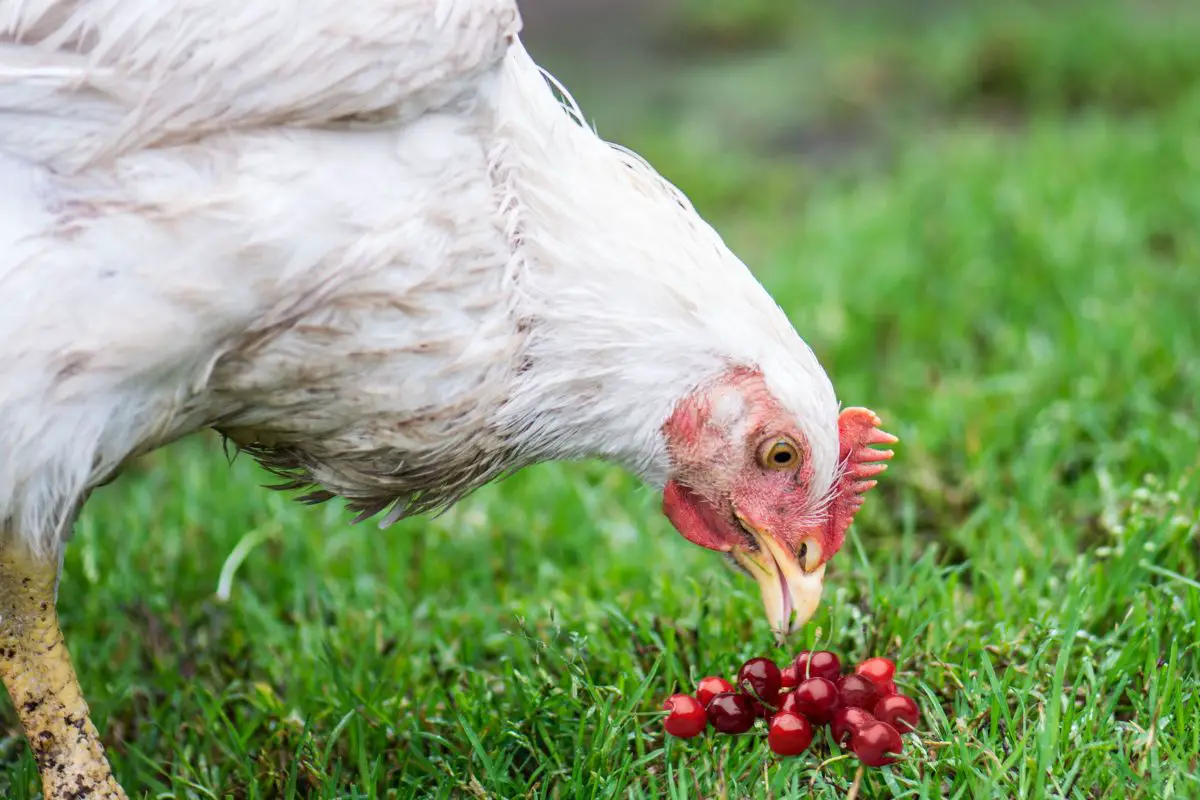Chickens can definitely eat cherries, but only fresh store-bought or wild cherries are safe. The leaves and pits contain solanine should be removed as they can be poisonous to your backyard chickens. Chickens will also eat sour cherries, but generally prefer sweet cherries due to the sugar content.
During late Spring and early Summer, cherries become plentiful. They are a treat that most people enjoy, and it can be tempting to feed your chickens cherries, especially if you have a cherry tree in your backyard.
Table of Contents
Are Cherries Dangerous for Chickens to Eat?
Chickens can eat cherries, but not the entire cherry. Cherries can be a choking hazard for chickens, especially if they are not pitted. Some over-eager chickens may swallow too many cherries at once which may cause them to choke, so it’s best to chop cherries into small pieces to make them easier to eat.
If you feed cherries to your chickens you should be aware that cherries have high sugar content, and you should always limit sweet treats for chickens because they don’t need a lot of extra carbohydrates.
Baby chicks should also not be fed cherries because they have a harder time with processing added sugar than adults. You should never feed old, moldy fruit to chickens as that can lead to sour crop and other potentially dangerous health problems.
If you have a cherry tree in your yard, make sure that your chickens don’t have unsupervised access because you won’t be able to control the amount that they eat. Too many cherries can cause digestive problems and even lower egg production.
What are the Health Benefits of Cherries?
Cherries are relatively low in calories (40 calories per half cup) making it a great treat for your chickens! Cherries have little fat, are high in dietary fiber, and contain vital nutrients that your chickens need.
Cherries are a powerhouse fruit that contain the following vitamins and minerals:
- Vitamin C
- Vitamin A
- Vitamin K
- Vitamin E
- Folate
- Phosphorus
- Magnesium
- Potassium
- Antioxidants
- Calcium
Just a handful of cherries a few times a week will give your chickens the following health benefits:
- Improves functioning of their digestive system
- Helps fight free-radicals
- Improves bone health
- Strengthens immune system
- Reduces inflammation
If you choose to feed cherries as part of your chickens’ diet, you should feel good in knowing that you are providing them with a healthy treat, as long as you are feeding your flock in moderation as part of a healthy diet.
Can Chickens Eat Any Kind of Cherry?
Unfortunately, no.
In this section, we will cover the different types of cherries and parts of the fruit that are safe for chickens to eat, as well as the parts of the cherry tree that you should never feed to your chickens.
- Cherry Leaves – Dried cherry leaves on the ground are okay for chickens to eat, but wilted leaves still attached to the tree shouldn’t be consumed as they contain cyanide.
- Cherry Blossoms – Are perfectly safe for chickens to eat.
- Cherry Stems – Chickens will have a hard time eating them and should not be offered.
- Cherry Pits – Should be removed due to containing a cyanide compound called solanine (only harmful if ingested in large amounts).
- Sweet Cherries – Are safe to offer your chickens in moderation.
- Sour Cherries – Safe for chickens to eat though they may prefer sweet cherries.
- Frozen Cherries – Most frozen cherries contain additional sugar and preservatives, so steer clear and only offer fresh cherries.
- Cherry Preserves – Should not be fed to your chicken due to the high-sugar content.
- Dried Cherries – Have much higher sugar content than fresh, and should be avoided.
- Fresh Cherries – In-season, fresh cherries are the best you can offer your flock.
- Wild Cherries – Are safe for your flock to eat.
How Should You Prepare Cherries for Chickens?
Whole cherries can be offered to your chickens, but you may want to consider pitting them first and removing the stem to decrease the chance of cyanide poisoning as the pits and stem contain solanine in small amounts. Most chickens will not eat these parts of the fruit but it is better to be safe than sorry.

Cherries can be cooked by boiling or steaming, but most chickens would prefer to eat them raw. If your provide cooked cherries to your chickens, ensure they are cool enough to eat, and have no extra sugar, fat, or additives. You should always wash the peel and leaves of any produce that you provide your chickens to be sure they don’t ingest pesticides.
For your chicken’s health, it is important that 90% of their diet is chicken feed, and you can supplement what they eat with fresh produce like cherries, watermelon, cucumbers and other nutritious fruit and veggies.

